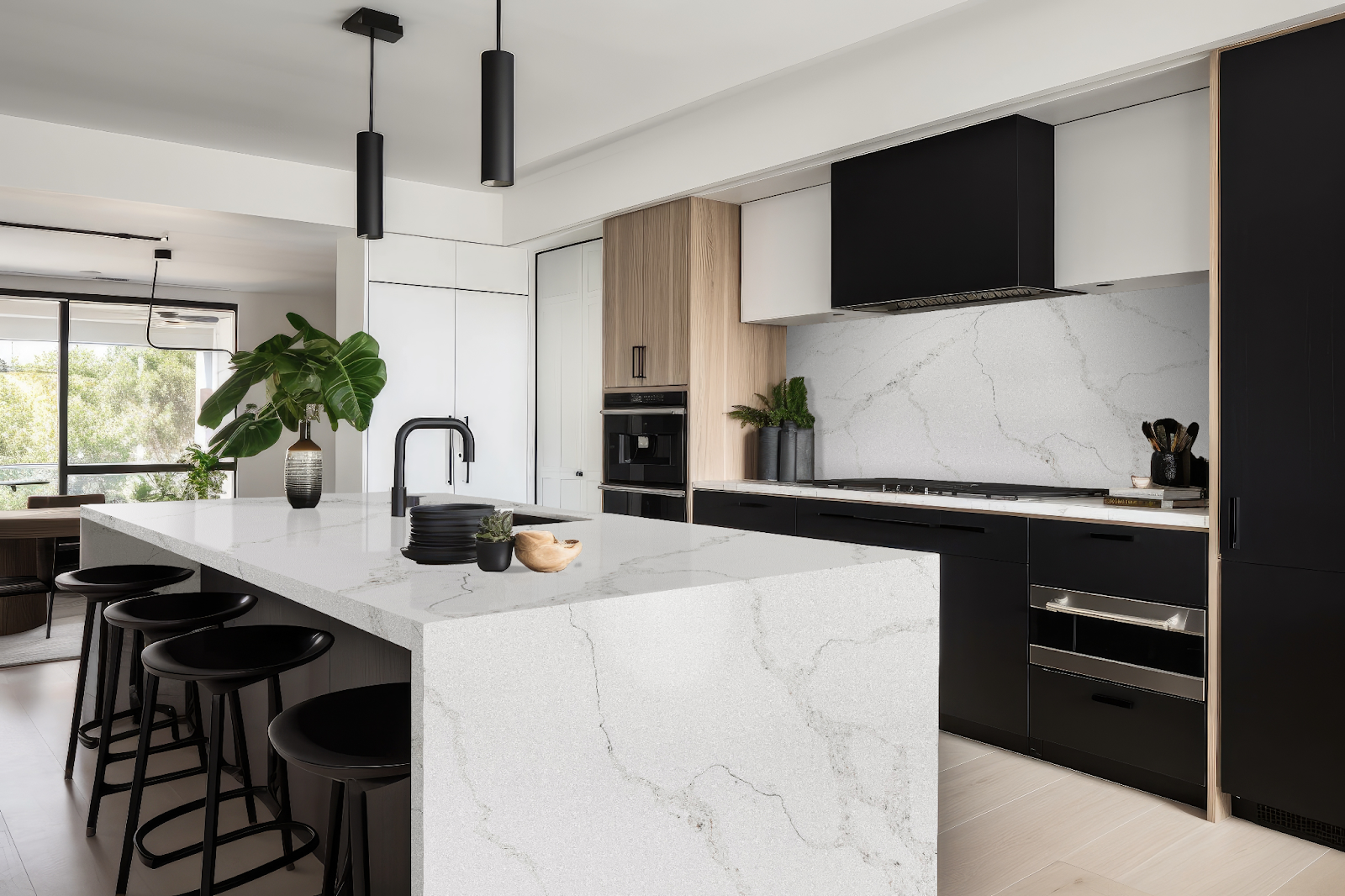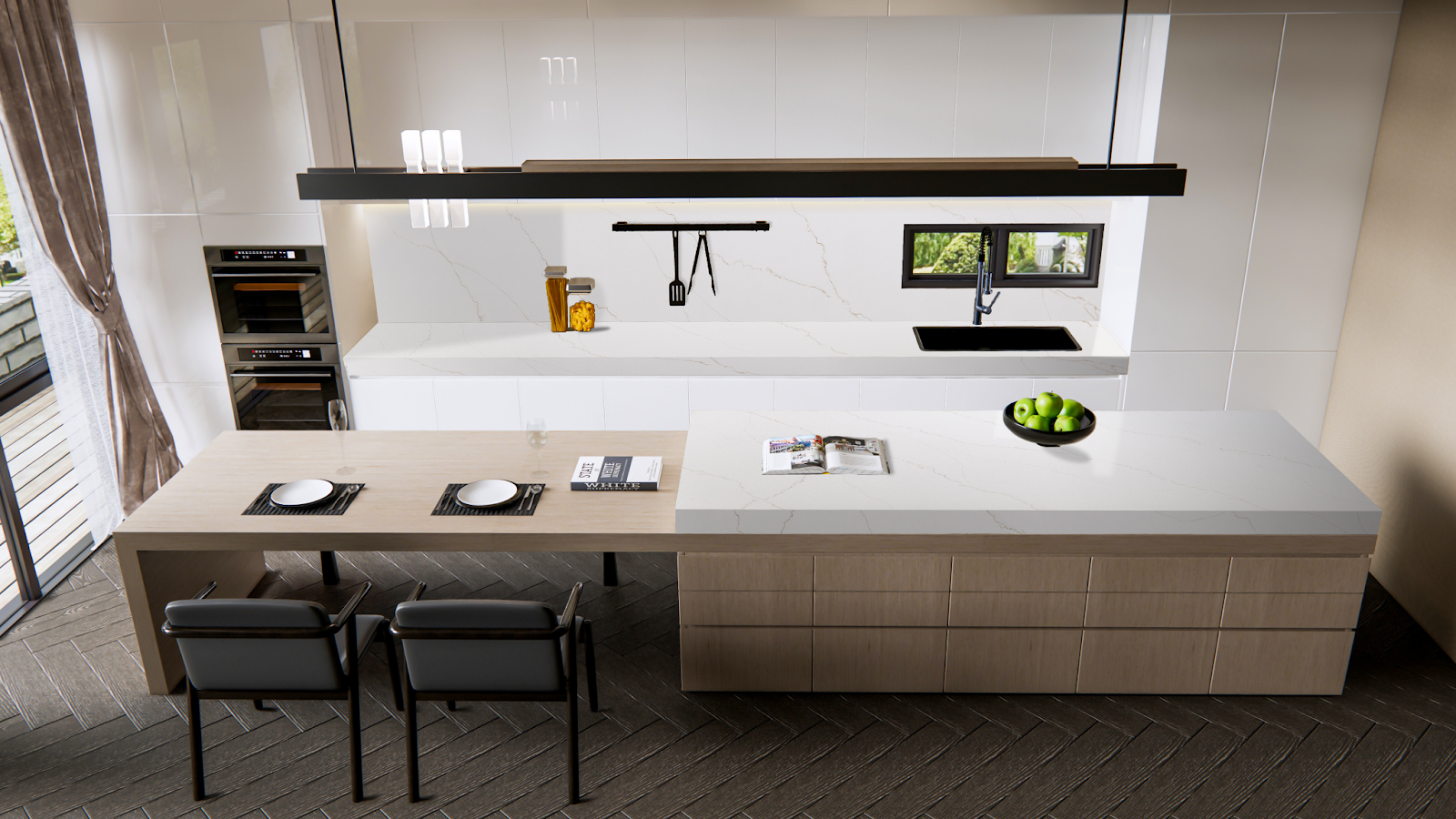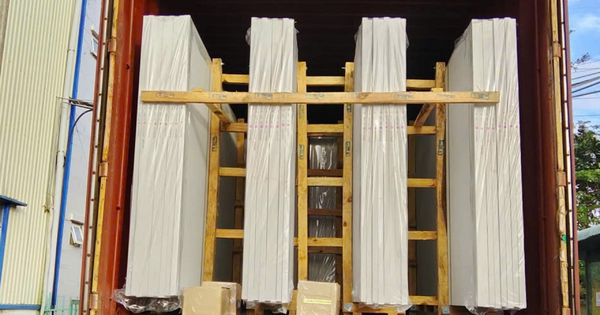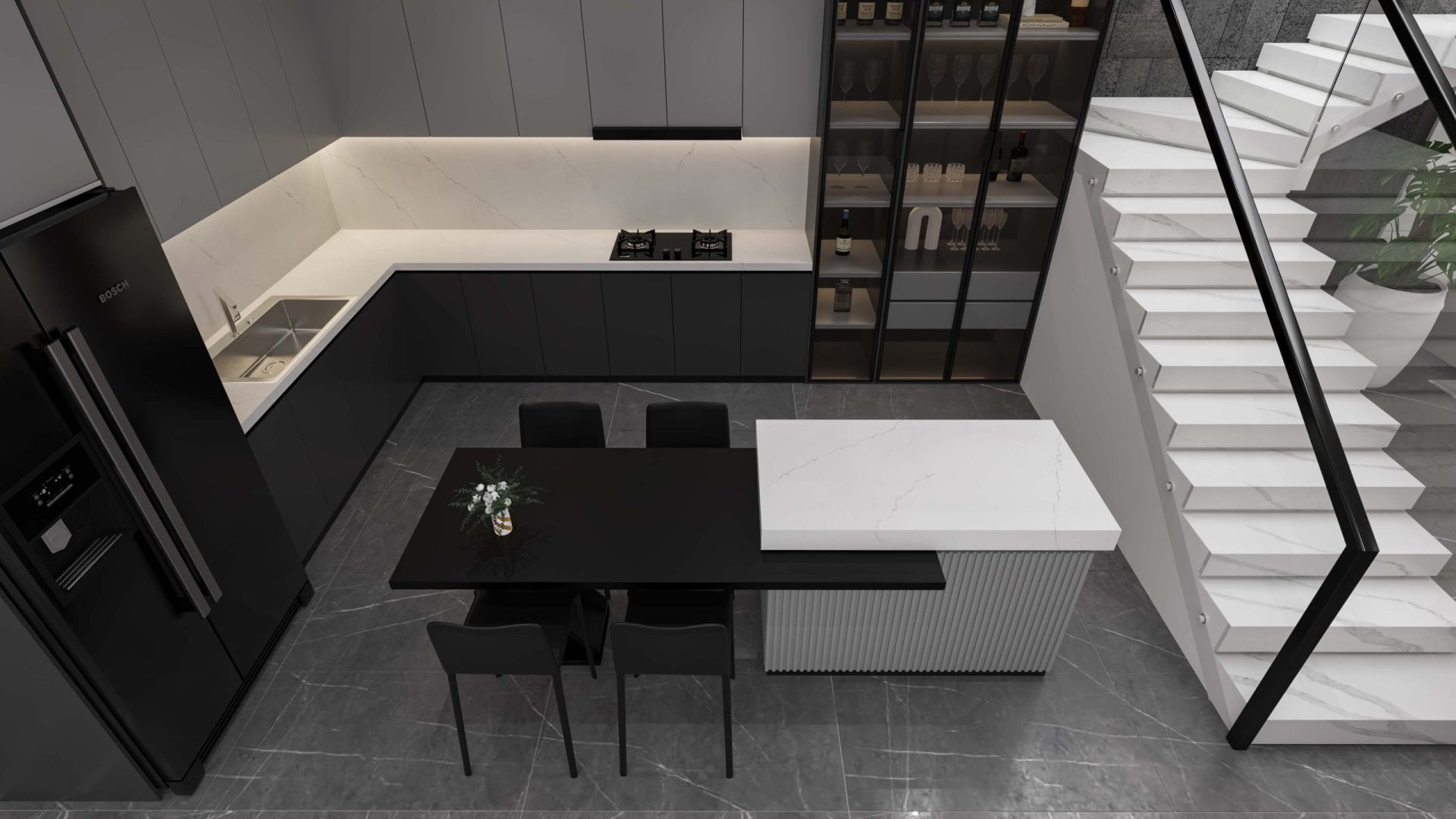When recommending countertops to clients, porcelain and quartz are two of the most requested materials. Both offer exceptional durability and aesthetic appeal, but each material has distinct advantages depending on the project’s needs. In this guide, we’ll compare porcelain and quartz countertops on critical factors such as visual appearance, durability, heat resistance, and installation to help contractors and stone distributors make informed decisions for your customers.
- Visual Appearance: Customization and Aesthetic Appeal
- Durability: Long-Lasting Performance
- Heat Resistance: Evaluating the Right Fit for High-Temperature Areas
- Scratch Resistance: Maintaining a Pristine Look
- Installation: Understanding the Requirements for Proper Setup
- Porcelain vs Quartz: Key Takeaways for Contractors and Stone Distributors
- Making Your Decision: Which is Right for Your Project?
- Why Choose Lux Quartz?
Visual Appearance: Customization and Aesthetic Appeal
Porcelain Countertops:
- Porcelain offers a sleek, smooth surface that is available in a wide range of colors and patterns, often mimicking the look of high-end natural stones like marble.
- While available in high-gloss or matte finishes, porcelain lacks the depth and texture found in quartz.
- The printed veins in porcelain countertops can be highly detailed and realistic, but they are surface-level patterns, not inherent throughout the material.

Quartz Countertops:
- Quartz countertops are engineered surfaces, combining natural quartz crystals with resin, allowing for a customizable, consistent appearance.This results in a more natural appearance, especially for designs mimicking marble or other stones, as the pattern is consistent through the countertop’s thickness.
- Available in a variety of finishes including polished, honed, and leathered, quartz can mimic natural stone but stands out with a greater depth and texture, providing more versatility for upscale designs.

While both materials offer aesthetic appeal, quartz stands out with its ability to deliver deeper textures, consistent patterns, and more options for creating unique, high-end designs.
Durability: Long-Lasting Performance
Porcelain Countertops:
- Porcelain countertops are durable and resistant to scratches, stains, and cracks. However, their thinner construction (typically 6–12 mm) makes them more susceptible to chipping or cracking under heavy impact or during handling. This fragility requires careful handling, especially along edges
Quartz Countertops:
- Quartz countertops are engineered for long-term durability, offering exceptional resistance to impacts, scratches, and daily wear. With a thicker structure (20–30 mm) and a composition of natural quartz grits and resin, quartz is less prone to brittleness and provides reliable performance in high-traffic areas. This robustness makes quartz a dependable choice for both residential and commercial applications, ensuring years of consistent use without compromising quality.
Heat Resistance: Evaluating the Right Fit for High-Temperature Areas
Porcelain Countertops:
- Porcelain countertops are highly heat-resistant. Their UV resistance ensures the material won’t fade when exposed to direct sunlight, making them a popular choice for outdoor kitchens or high-heat environments.
Quartz Countertops:
- Quartz countertops offer good heat resistance for everyday use, but prolonged exposure to high temperatures or direct sunlight can lead to discoloration or warping. To maintain their integrity, it’s recommended to use trivets or heat pads under hot cookware. For indoor applications, quartz remains an excellent and reliable option.
Scratch Resistance: Maintaining a Pristine Look
Porcelain Countertops:
- Porcelain is a tough material that resists minor scratches, but it is more vulnerable to chipping or cracking upon sharp impacts, particularly along the edges. Such damage often requires professional repair to restore the surface to its original condition.

Quartz Countertops:
- Quartz surfaces are highly scratch-resistant, making them ideal for high-traffic areas like kitchens and commercial spaces. The engineered composition of natural quartz and resin ensures durability against everyday wear and tear, such as knife marks, abrasive materials, or heavy usage. While no surface is entirely scratch-proof, quartz offers superior protection compared to porcelain, maintaining its pristine appearance with minimal maintenance.

Installation: Understanding the Requirements for Proper Setup
Porcelain Countertops:
- Porcelain’s lightweight nature simplifies handling and allows for faster installation, including the option to place it over existing surfaces in some cases. However, its thin and brittle structure requires extra care during installation to avoid damage, especially to its edges.
Quartz Countertops:
- Quartz countertops may be heavier, but their engineered composition provides flexibility and resilience, making them easier to handle during installation compared to more brittle materials like porcelain. The thicker structure of quartz ensures a secure fit and long-term stability once installed. While quartz typically requires the removal of existing countertops and a robust support structure, these steps result in a solid and reliable installation that enhances the overall lifespan and functionality of the product.
Porcelain vs Quartz: Key Takeaways for Contractors and Stone Distributors
| Characteristic | Porcelain Countertops | Quartz Countertops |
| Material Composition | Refined clay and minerals, often with printed patterns |
Engineered with 90-93% natural quartz crystals and resin. Quartz countertops offer two veining options: through-body veining and printed veining. |
| Durability | Resistant to scratches, stains, and cracks, but fragile during installation due to thinner construction |
Highly durable and impact-resistant, with better resilience overall. |
| Thickness | Typically 6–12 mm, thinner, more prone to chipping | Typically 20–30 mm, thicker and more robust |
| Heat Resistance | Excellent heat resistance, suitable for high-heat areas | Good heat resistance, but prolonged exposure can cause discoloration |
| Scratch Resistance | Tough but may chip or crack upon sharp impacts | Highly scratch-resistant and resistant to wear and tear |
| Installation | Lightweight, easier to handle and install, may be installed over existing surfaces | Heavier, requires more robust installation but offers secure, long-term stability |
| Design Flexibility |
Available in a variety of printed designs with clean, modern aesthetics, though edge profile options are limited, and printed patterns may fade over time |
Offers a wider range of edge profiles, finishes, and long-lasting patterns, including through-body veining for a natural look with authentic veining |
| Maintenance | Low-maintenance, easy to clean | Low-maintenance, easy to clean, and non-porous, resistant to bacteria |
| Application | Ideal for outdoor kitchens, areas exposed to high heat | Ideal for interior designs, suitable for both residential and commercial spaces, including kitchens and bathrooms |
Making Your Decision: Which is Right for Your Project?
While both materials have their strengths, quartz consistently stands out for:
- Natural Aesthetics: Deeper, more natural patterns and textures throughout the slab.
- Superior Durability: Thicker construction, reducing the risk of chipping or cracking.
- Customization Options: A wide range of designs, finishes, and edge profiles to suit any project.
- Ease of Installation: Quartz’s robust structure ensures secure, stable installation and long-term durability.
- Easy Maintenance: A non-porous surface that resists stains, scratches, and bacteria.
- Long-Term Value: Ideal for indoor spaces, quartz combines reliability, elegance, and lasting quality.
Why Choose Lux Quartz?
At Lux Quartz Vietnam, we don’t just provide quartz—we deliver solutions tailored to your business.
- Exclusive Designs: Unique patterns to set your projects apart.
- Precision Engineering: Crafted with care to meet the highest quality standards.
- Seamless Service: From consultation to delivery, we’re with you every step of the way.
Let’s work together to transform your projects. Contact us today to explore our premium quartz solutions!


















